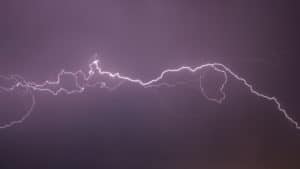Overeating, especially in the winter months, is incredibly common as it is difficult to resist all the treats and indulgences that are marketed to us.
However, it may not be a question of willpower for many as there can be underlying causes of overeating:
Lack of Sleep
Sleep is what repairs and restores our bodily processes and when your body does not get enough sleep, it looks for other ways to fuel your systems. That is why when you are really tired, you may crave sweets, processed foods, and carbohydrates because they are quick ways to give your body energy.
Moreover, studies show that just one night of inadequate sleep can cause an imbalance in the hormones that control hunger signaling. A night of poor sleep is linked to an increased production of ghrelin, “the hunger hormone,” and decreases leptin levels, or the satiety hormone.
It is important to note that although you may think you had a restful night’s sleep, blue light from electronic screens can disrupt your sleep patterns. Avoid using electronics for 30-60 minutes before bed.
Chronic Stress
Similar to a lack of sleep, chronic stress’s link to overeating is based on survival. When you are stressed, the body attempts to gain the energy needed to combat whatever danger may be ahead. This is because when we are chronically stressed, our hypothalamus pituitary adrenal axis (HPA Axis) is constantly activated, leading to high cortisol levels, which then result in increased food cravings.
Additionally, there is evidence that because chronic stress is such a taxing experience, it can increase your motivation to consume foods that release dopamine, meaning “reward foods,” such as processed or sweet foods that act as a coping mechanism.
Chronic stress is also one of the main contributors to insulin resistance, a condition associated with food cravings and weight gain. Learn more here.
Lack of Proper Fuel
After a workout, it is essential to fuel your body with the proper nutrients it needs or you will be more likely to overeat later on. Although it may feel like the perfect time to indulge and reward yourself for being motivated and exercising, if you eat the wrong combinations of foods, or too little, your hunger levels may be off the rest of the day. It is best to eat 30-60 minutes after a workout and your meal should consist of both carbohydrates and protein to support your reparative processes. After physical activity, your muscles use their stored glucose (glycogen), which results in the muscles being partially depleted.
A lack of protein and carbohydrates after a workout impairs your body’s ability to repair muscle and impacts your hunger levels. Studies have not only shown that exercise can reduce your blood sugar, but the longer you wait to eat when you’re hungry, the lower your blood sugar will drop, significantly increasing your food cravings.
Leptin Resistance
Leptin is a hormone that informs the body when it should be storing or burning fat. As the body acquires fat the amount of leptin circulating in the bloodstream increases. Unsurprisingly, many obese individuals suffer from increased leptin levels due to the excess fat that they carry. In a healthy system, an increase in leptin promotes sensations of fullness and informs the body that it should not store fat. However, when levels of leptin are maintained at a high level for an extended period the body can develop a resistance to leptin. This can result in overeating. Reduced leptin receptivity makes the hypothalamus think that fat stores are depleted and should be restocked. This triggers the release of various hormones that inhibit fat utilization, encourage fat storage, and promote sensations of hunger. As fat continues to accumulate, leptin levels also rise which causes a subsequent worsening of leptin resistance and its associated weight-related issues. This cycle of decline can have a dramatic effect on bodily function and overall wellness. Learn more about leptin resistance here.
Other Hormonal Imbalances
For women, menstruation, pregnancy, or menopause can lead to fluctuations in testosterone and estrogen levels that will often cause strange cravings. Further, people may not be producing chemicals in the body that give them the messages that they are full, leaving them craving satiating treats.
Dehydration
Interestingly, because your body may not signal that it is “thirsty” until it is nearly dehydrated, some people recognize the feeling of thirst as slight hunger. Thus, if you are experiencing a mild craving for a meal, have a glass of water first to avoid overeating and stay hydrated.
If you struggle with overeating and feel you are not getting the help you need, contact a member of Holtorf Medical Group today. Our team of experienced doctors is trained to get to the root cause of your symptoms and improve your quality of life.


